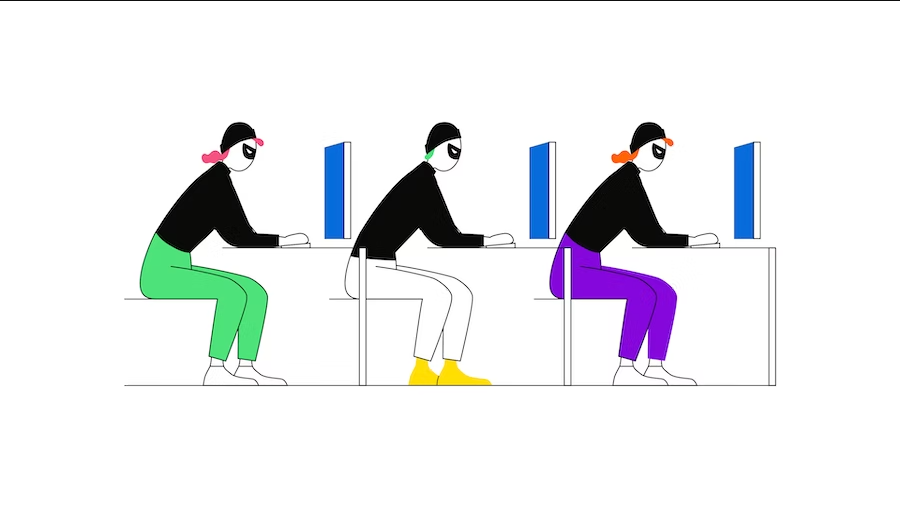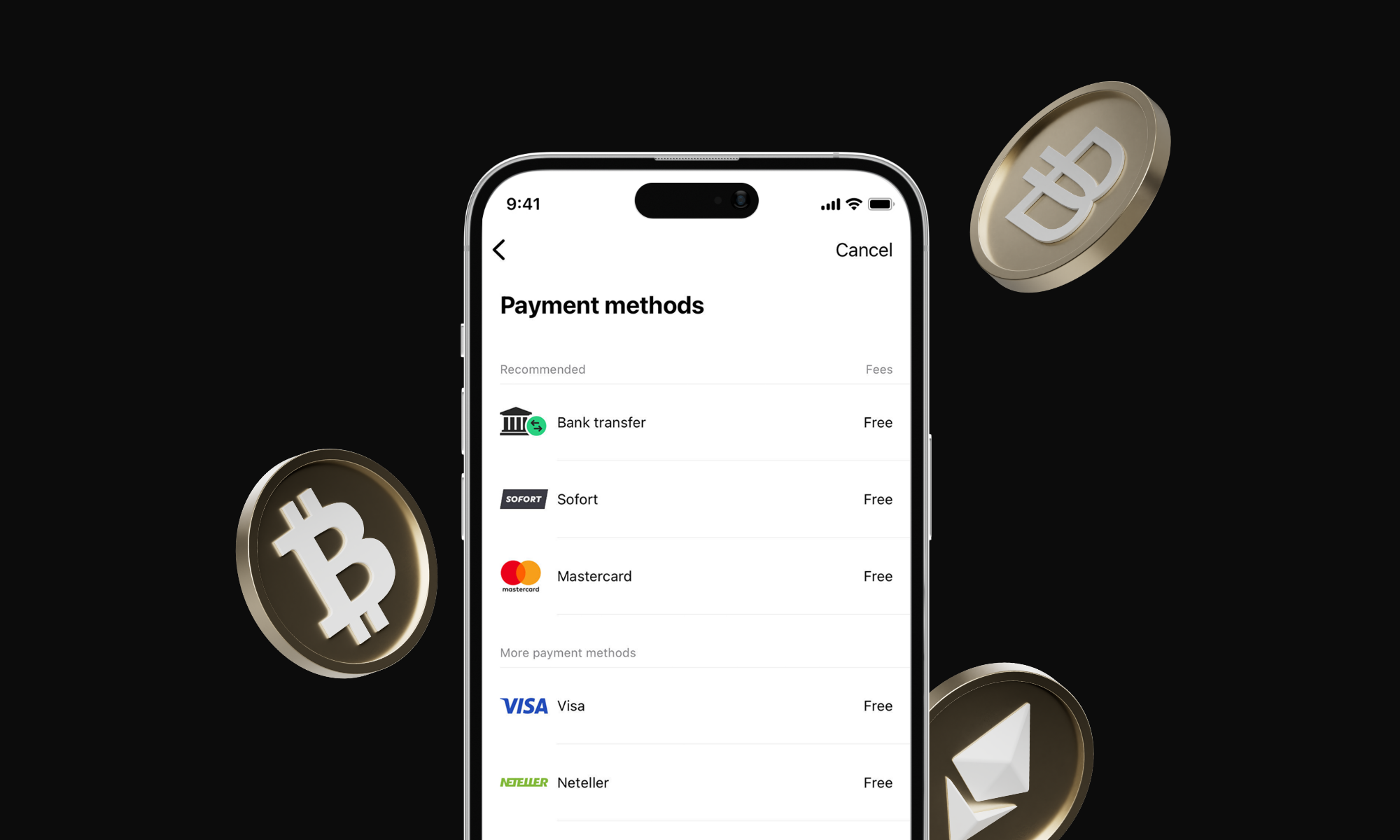Ethereum, the altcoin giant and the second-biggest crypto, is on its way to its highly-anticipated update Ethereum 2.0 which will bring a monumental change in its consensus algorithm. Ethereum 2.0 probably won’t be the only highlight for Ethereum in 2022, as the blockchain is home to many DAOs, ERC20 tokens, DApps, NFTs and Defi platforms, all areas which may present us with surprising developments in the upcoming months.
The merge: a step towards Ethereum 2.0
What will likely be a highlight of the year for the entire crypto market is Ethereum’s plan to move forward with Ethereum 2.0. For many, with this upgrade, Ethereum could even have the potential to overpower Bitcoin, an event known as “The Flippening”.
At the heart of Ethereum 2.0, there’s the change of consensus algorithm: Ethereum will switch from Proof of Work to the more environmentally-friendly Proof of Stake. In addition to a drastic reduction in environmental costs, this switch will make the network faster and cheaper, since the upgrade is expected to increase Ethereum’s TPS (transactions per second) considerably, from its current 30 to a possible 10,000 TPS. This improvement has the potential to solve the network’s congestion issues and possibly decrease Ethereum’s high transaction fees.
While this upgrade is definitely going to take some time, this year we’ll see this altcoin giant taking a step forward in its plan. This step is known as “the merge”: it’s expected to happen in the first half of 2022 and, as the name suggests, it will “merge” Ethereum’s mainnet with the Beacon Chain.
The Beacon Chain was launched on December 1, 2020, and the merge represents the step that will finally allow Ethereum to switch to PoS while also preparing it for staking and shard chains.
ERC20 tokens powering adoption
The Ethereum Request for Comments 20 - ERC20 for short - token standard is a technical standard for smart contracts used to implement tokens on the Ethereum blockchain. Before ERC20, cryptocurrencies exchanges had to build ad hoc bridges to allow token exchanges between platforms.
The ERC20 standard is a set of 6 rules that smart contracts have to adhere to if they want to run on the Ethereum blockchain, a system that promotes interoperability between the smart contracts themselves.
If a smart contract is compliant with the 6 rules of ERC20, it can launch its token on the blockchain and third parties and applications can access the whole related infrastructure and be able to execute transactions, connect wallets and access information. Respecting the ERC20 standard also means that the smart contracts’ behaviour will be predictable, and there will be no need for bridges between platforms.
There are currently 486,408 ERC20 tokens in circulation, and their popularity is rising. Some ERC20 tokens include the Bitpanda Ecosystem Token (BEST), Tether (USDT), Shiba Inu (SHIB) and Chainlink (LINK) along with many more.
If DApps and DeFi platforms will keep expediting the adoption of blockchain technology, ERC20 tokens powering the smart contracts behind them are also bound to play an important role. From 2022 onwards, we could see ERC20 tokens expanding Ethereum’s use cases further, particularly in day-to-day life.
DAO and DeFi will take centre stage
Two terms we’re likely going to hear very often in 2022 are DAO and DeFi. DAO, short for Decentralised Autonomous Organisation, refers to an Ethereum-based community owned by its members, in which leadership is decentralised and rules are written in code. DAOs are powered by smart contracts, self-enforceable, digital representations of classic contracts.
Once the DAO’s smart contract is up and running on the Ethereum blockchain, the only way to alter it is to put any suggested change to the vote. Since there’s no centralised authority in DAOs, all the decisional power lies in the hands of its members, whose votes will determine whether changes will be made to the network or not.
DAOs have been flourishing on the Ethereum network and today they’re seen as an alternative not only to more traditional types of organisations, but also even to traditional businesses and work models: some believe that DAOs have the power to change company structures as we know them.
Not only DAOs, but also many DApps (decentralised applications) are based on Ethereum as the power of the internet is being shifted to users. DApps are the result of smart contracts, a cryptocurrency, a blockchain and an app coming together. DApps have a great influence on the developments of DeFi: even though it’s just the beginning of decentralised applications, they’re already disrupting the world of traditional finance by providing financial services through cryptocurrencies, from lending and borrowing to executing transactions and earning.
The possible use cases of DApps go beyond decentralised finance: any type of application you could see yourself installing on your laptop or smartphone can be a DApp, including social media, browsers, games, job platforms and many more.
DApps and DeFi surged in popularity in the past year, and it wouldn’t be surprising to see Ethereum following the upward trend in 2022.
Ethereum and NFTs on the rise
NFTs have been in the limelight throughout 2021 and this trend isn’t about to stop any time soon. Famous artists and personalities keep approaching the NFT world: for instance, Eminem recently bought a Bored Ape for 123.45 ETH - $462,00 at the time of purchase. The Ethereum blockchain hosts many NFT marketplaces, including OpenSea, the biggest NFT marketplace for trading volume, which started 2022 with a whopping $300M funding.
Aside from shaking up the landscape with their use in digital art, NFTs can be used to represent ownership of any digital asset and Ethereum is betting on them to further shape the future of decentralised finance - for instance with projects such as NFT-backed loans and fractional ownership, with the latter currently in development.
The NFT hype isn’t set to slow down in 2022, and we can see NFTs playing an active part in further expanding Ethereum’s mainstream adoption in the months to come.
Ethereum will face strong competition
Even though Ethereum is still considered the biggest altcoin and is the most popular blockchain for smart contracts with regard to DApps and DeFi, it will likely face some serious competition in 2022.
Blockchains like Solana, Near Protocol, and Polkadot to name just a few, are working to provide a safe, fast and inexpensive environment alternative to Ethereum for developers to create and implement smart contracts and DApps, and to broaden the applications of decentralised finance.
Earlier this month, the Metaplex Foundation raised $46M in a strategic funding round to expand Solana’s NFT ecosystem, while the DeFi protocol Hubble raised $10M and it’s now getting ready to launch on Solana mainnet.
Near Protocol is also gaining ground in DeFi, and launched an $800M developer fund in October 2021. Not long after, Polkadot began its parachain auctions and the first one was won by the DeFi platform Acala.
With Ethereum 2.0 and the official switch to the Proof of Stake consensus still in the making, these other blockchains can be truly challenging contenders as they’re already able to provide a higher number of transactions per second and cheaper transaction fees than Ethereum.
Although Ethereum is still retaining the highest number of active developers, blockchains pushing into the space are establishing themselves as a valid alternative, and we might also see them strongly contest ETH’s dominance in 2022.
Disclaimer
This article does not constitute investment advice, nor is it an offer or invitation to purchase any digital assets.
This article is for general purposes of information only and no representation or warranty, either expressed or implied, is made as to, and no reliance should be placed on, the fairness, accuracy, completeness or correctness of this article or opinions contained herein.
 Commodities* Invest in commodities 24/7
Commodities* Invest in commodities 24/7 BITCOIN What to know when you are just starting to invest
BITCOIN What to know when you are just starting to invest ASSET MANAGEMENT Your investment, your assets: Why your money is safe with Bitpanda
ASSET MANAGEMENT Your investment, your assets: Why your money is safe with Bitpanda COUNTDOWNBitcoin Halving Countdown 2024
COUNTDOWNBitcoin Halving Countdown 2024 ACADEMYWhat is the Bitcoin halving?
ACADEMYWhat is the Bitcoin halving?






